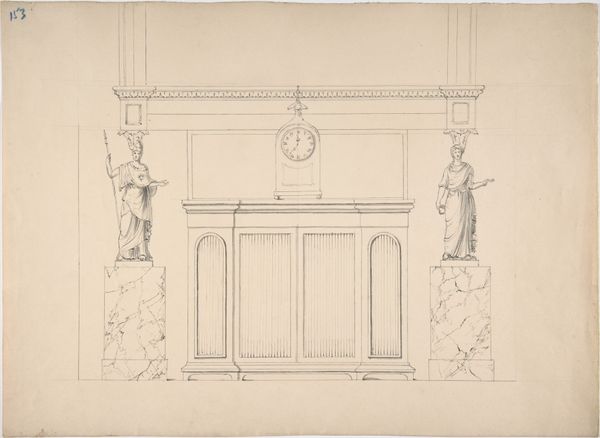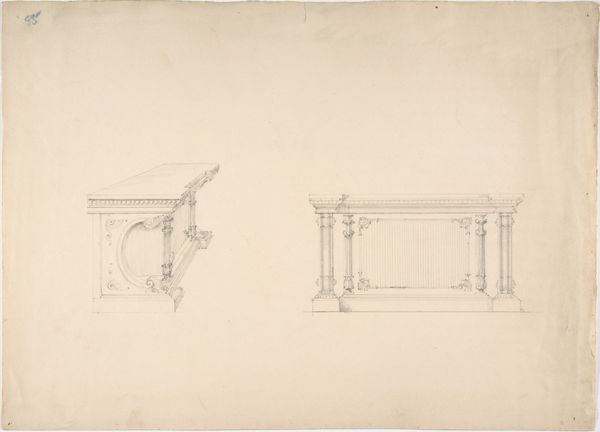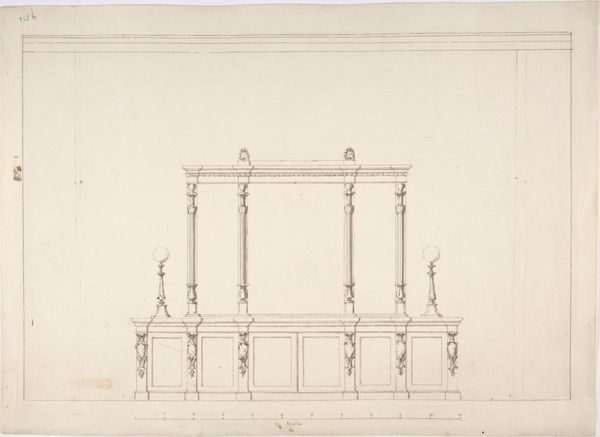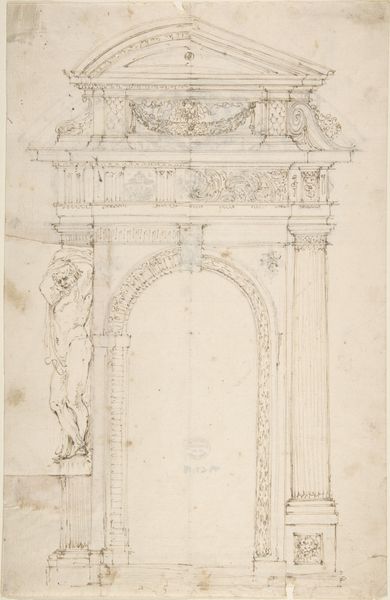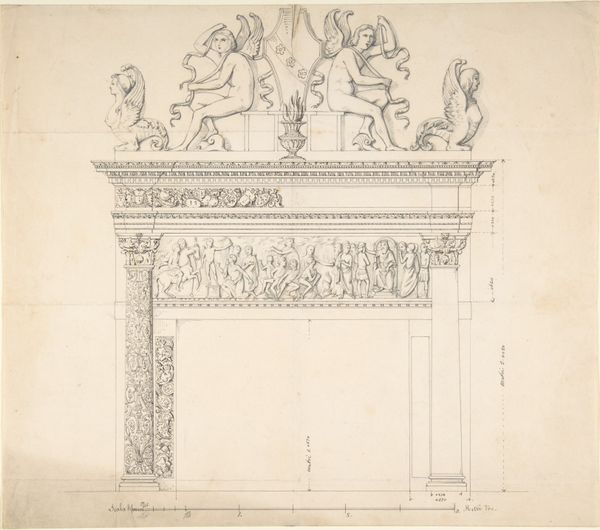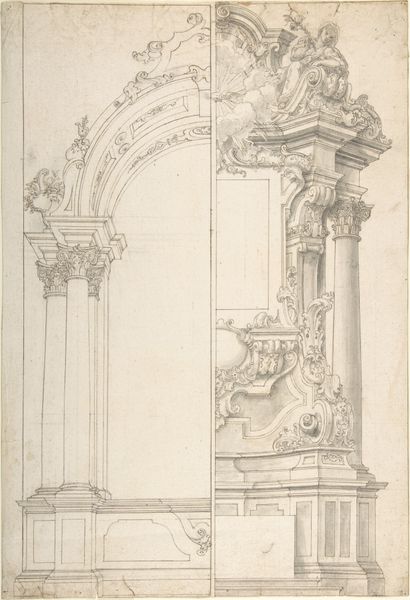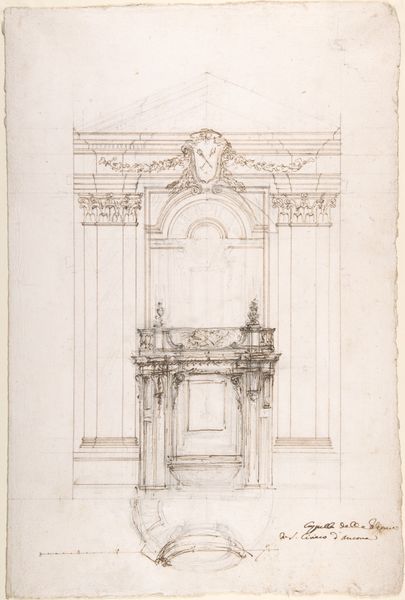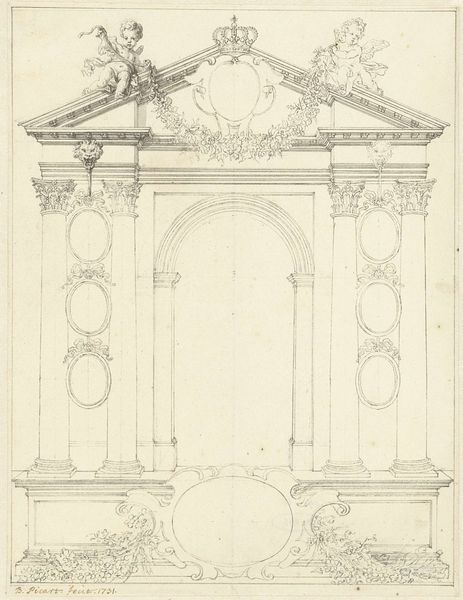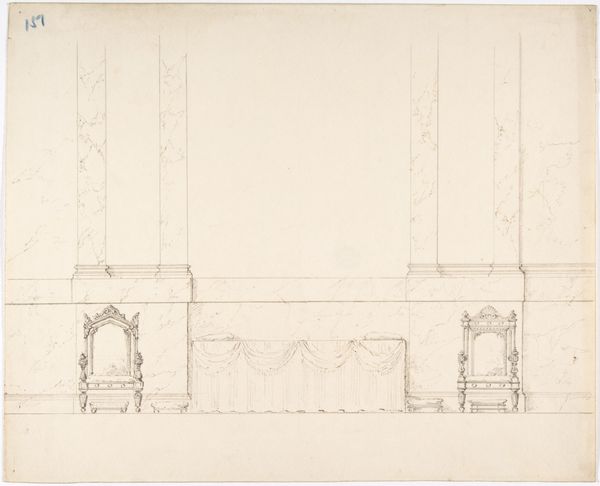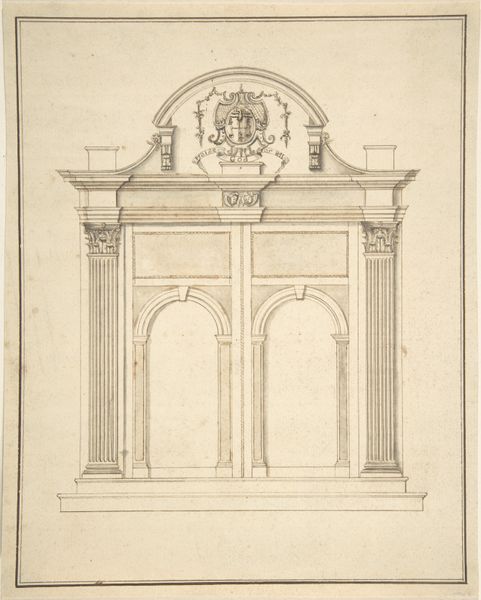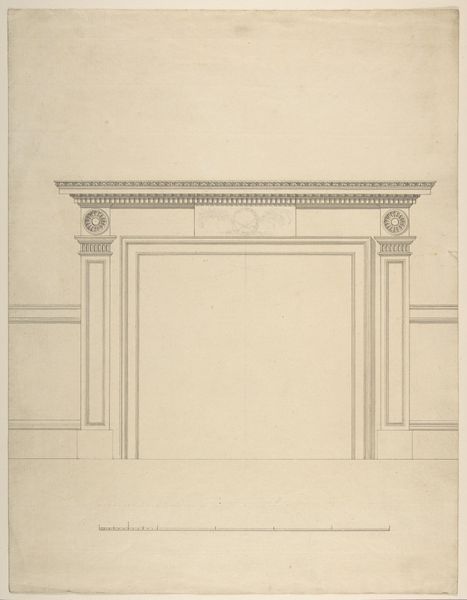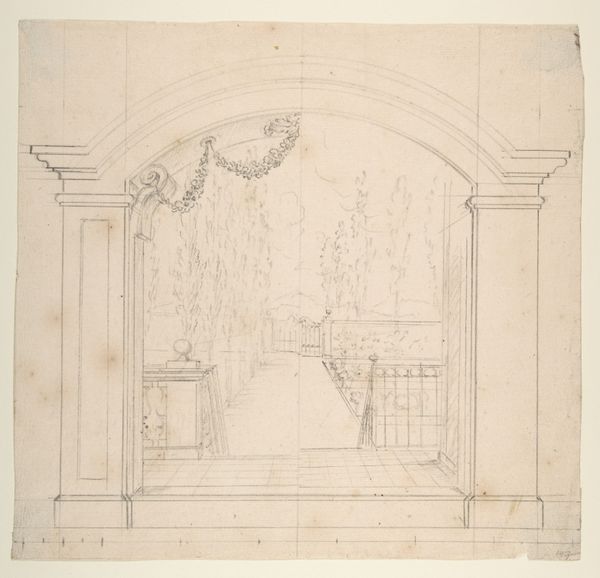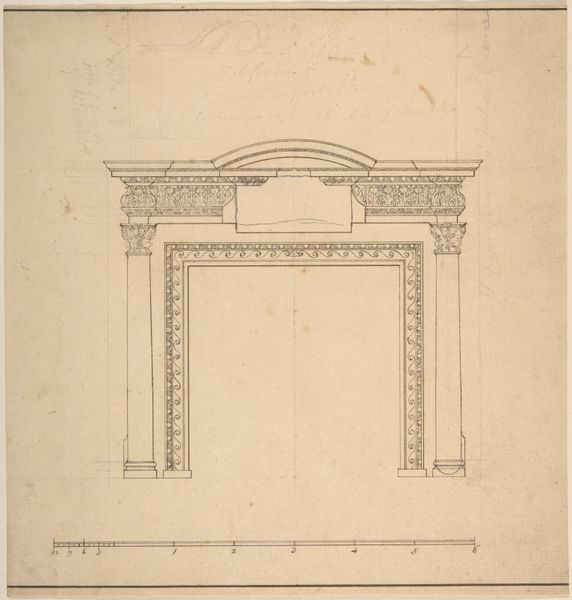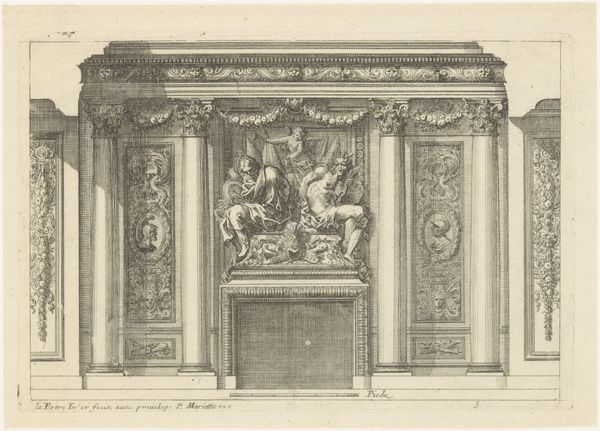
Design for a Cabinet with Inset Fabric Panels, and Two Female Classical Statues on Marble Pedestals 1800 - 1850
0:00
0:00
drawing, print, etching, architecture
#
drawing
#
neoclacissism
# print
#
etching
#
classical-realism
#
etching
#
figuration
#
architecture
Dimensions: sheet: 10 3/4 x 14 15/16 in. (27.3 x 37.9 cm)
Copyright: Public Domain
Editor: We’re looking at a drawing titled “Design for a Cabinet with Inset Fabric Panels, and Two Female Classical Statues on Marble Pedestals,” dating from around 1800 to 1850. It's a print – an etching, actually. The neoclassical style is obvious and the symmetry strikes me right away, but what are your immediate impressions, seeing it with a formalist perspective? Curator: The composition is meticulously structured. Note how the central cabinet, flanked by the statues, establishes a bilateral symmetry, reinforced by the echoing vertical lines of the pilasters and statue pedestals. Observe how the radiating lines within the cabinet panel function as a visual anchor. The statues create vertical counterpoints to this central focus. Editor: Yes, there's definitely a deliberate balance at play. I also see that the clock almost acts as a keystone. Is the relationship between the clock and the statues of note from a formalist standpoint? Curator: Precisely. Consider the interplay between the linear precision of the architecture and the organic forms of the figuration. What happens if one element changes or is taken away? The relationship is necessary to establish structure; without it the eye does not move with purpose or balance, which is intrinsic to the architectural artwork overall. Editor: So the etching highlights a classical idea of order, visually conveyed. Curator: Yes, the artist used form and line to achieve just that. A visual argument, if you will, about the importance of balanced design. The subtle gradations of light and shadow created by the etching technique add depth while maintaining that key classical composure. Editor: This has given me a totally new appreciation for the details in this design. The symmetry isn’t just pleasing, it's purposeful. Thanks for that, Curator! Curator: Indeed. Studying how forms work together allows us to understand artistic decisions beyond their face value, Editor!
Comments
No comments
Be the first to comment and join the conversation on the ultimate creative platform.
